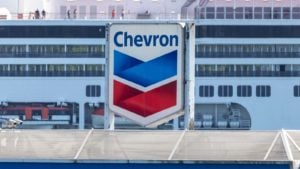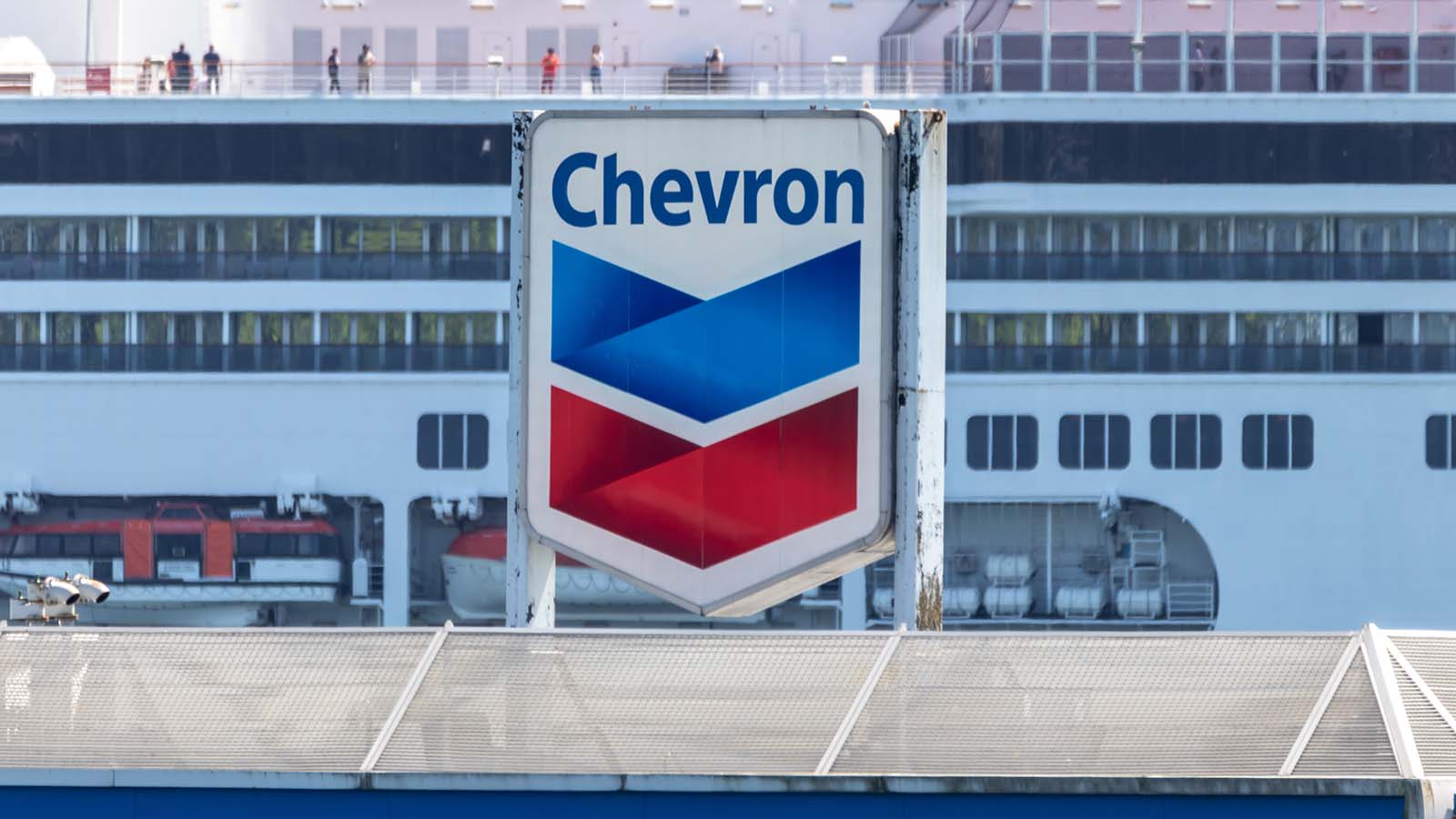Chevron (NYSE:CVX) is usually seen as the little brother to Exxon Mobil (NYSE:XOM) in the oil patch.

But just as Target (NYSE:TGT) is outperforming its big brother, Walmart (NYSE:WMT), and Advanced Micro Devices (NASDAQ:AMD) is outperforming Intel (NASDAQ:INTC), so Chevron is now outperforming its rival thanks to a change in strategy.
Unlike the moves made by Target and AMD, however, Chevron’s strategy is one it can only execute once.
It’s liquidating itself.
Chevron will return $75 billion to 80 billion to shareholders over the next five years, in the form of buybacks and dividends. This comes just weeks after cutting the value of its own reserves by just under $11 billion, based on a continuing gas glut and low prices for oil.
Chevron is being realistic. If you’re buying it, you need to be too.
The Yield Trap
Chevron shares open for trade March 6 at about $94. That’s a market capitalization of $178 billion, on revenue of about $140 billion. Due to the asset write-offs, the price-earnings ratio looks off-the-charts at 61. But the $1.29 per share dividend yields about 5.3%.
That’s right. While the U.S. government will only give you 1.5% on its 30-year bond, Chevron will give you 5.3% for its stock.
The question is whether the Chevron payout can last, or whether it’s a “yield trap.” CEO Mike Wirth assures investors it’s affordable. He says Chevron won’t increase capital spending and focus on profitable fields like the Permian Basin. Chevron paid almost $13 billion to shareholders last year on free cash flow of $13.2 billion.
Oil bulls claim Chevron is eating its seed corn. New reserves were just 44% of Chevron’s production last year.
Contrast this with Exxon, which has been investing heavily in new Guyana fields. Capital spending of over $24 billion last year left it with free cash flow of just $5.4 billion. It needs over $14 billion to fund its 87 cent per share dividend. But it’s adding reserves much faster than it’s pumping them.
Regardless which strategy investors prefer, they’re losing money. Chevron shares are down 24% over the last year. Exxon is down 40%.
Rely on OPEC?
Chevron’s write-offs last year were based on an admission that natural gas prices will remain low. Flaring, the burning of gas at the wellhead because it can’t be sold, is at record levels. West Texas Intermediate (WTI), the crude Chevron is pumping in the Permian, has fallen in price from $56 to $44 per barrel over the last year.
Wirth is left hoping for production cuts from OPEC and Russia. OPEC is proposing to cut production by 1.5 million barrels per day during the second quarter. Russia has yet to agree.
The growing climate crisis also has Wirth defending oil from comparisons with tobacco, which also raised returns while it cut production.
The Bottom Line on Chevron Stock
TV analyst Jim Cramer has pronounced himself “done with fossil fuel stocks.” That’s because demand for the product is in a long-term downtrend, thanks to efficiency, electric cars and the falling prices of solar cells.
In this environment, Chevron is a better bet than Exxon, at least for the next year or two. Demand from China will rebound. Prices will firm. Chevron’s $15 billion of capital returns will be delivered.
The question is, what will happen to the stock’s value while these payouts are being made? The buybacks are meant to cushion the blow, increasing the return on invested capital by putting less capital at risk.
Income investors can buy Chevron here in hopes OPEC gets its act together. But over the long run the big money is no longer coming out of the ground.
Dana Blankenhorn has been a financial and technology journalist since 1978. He is the author of the environmental thriller Bridget O’Flynn and the Bear, available at the Amazon Kindle store. Follow him on Twitter at @danablankenhorn. As of this writing he owned no shares in companies mentioned in this story.
